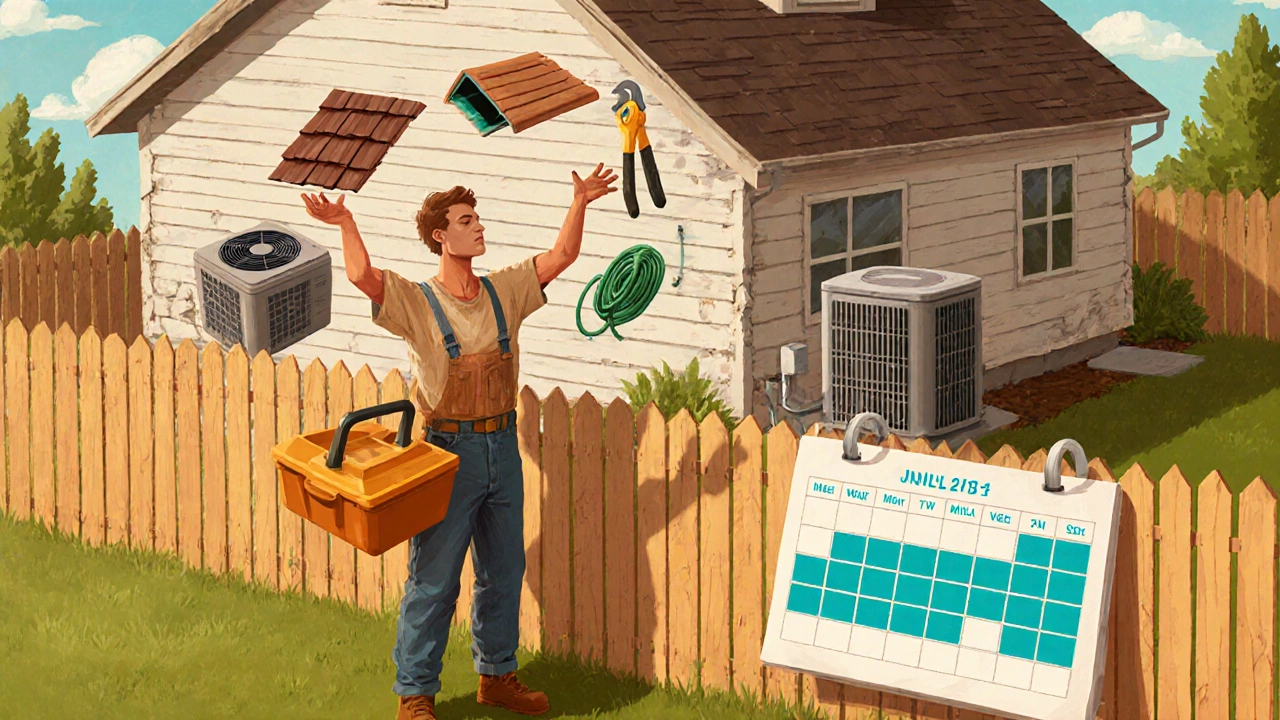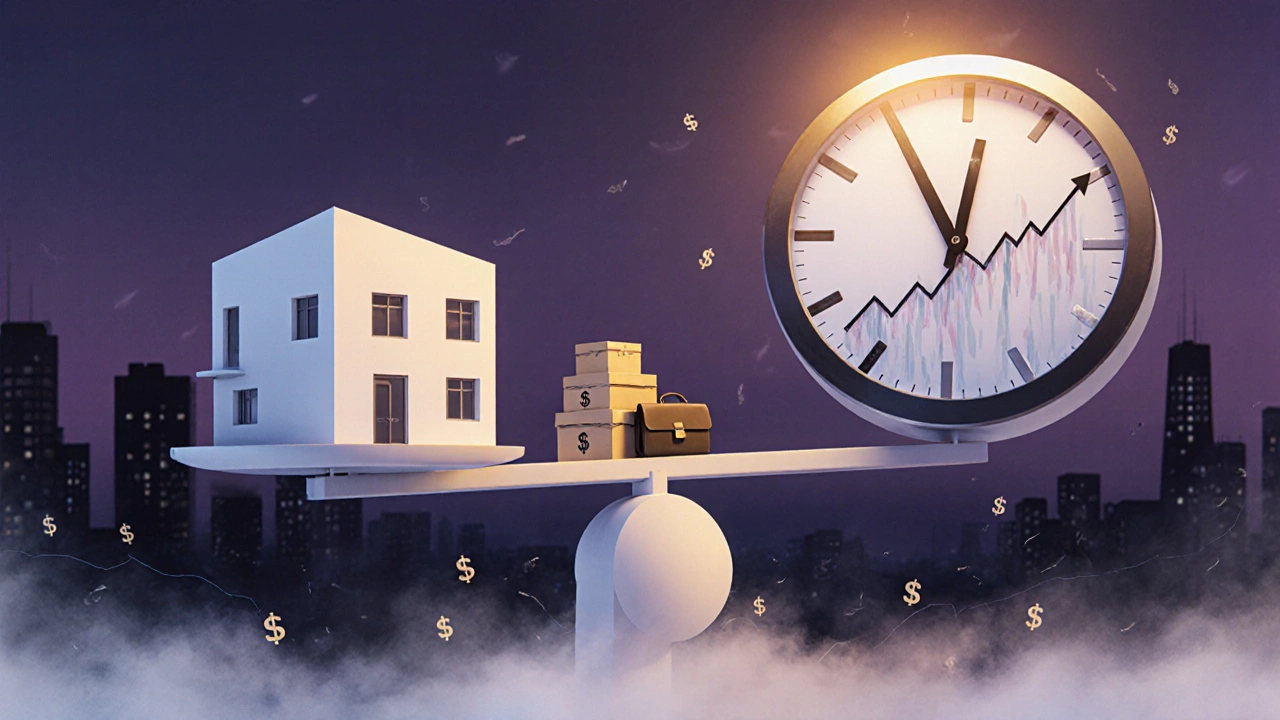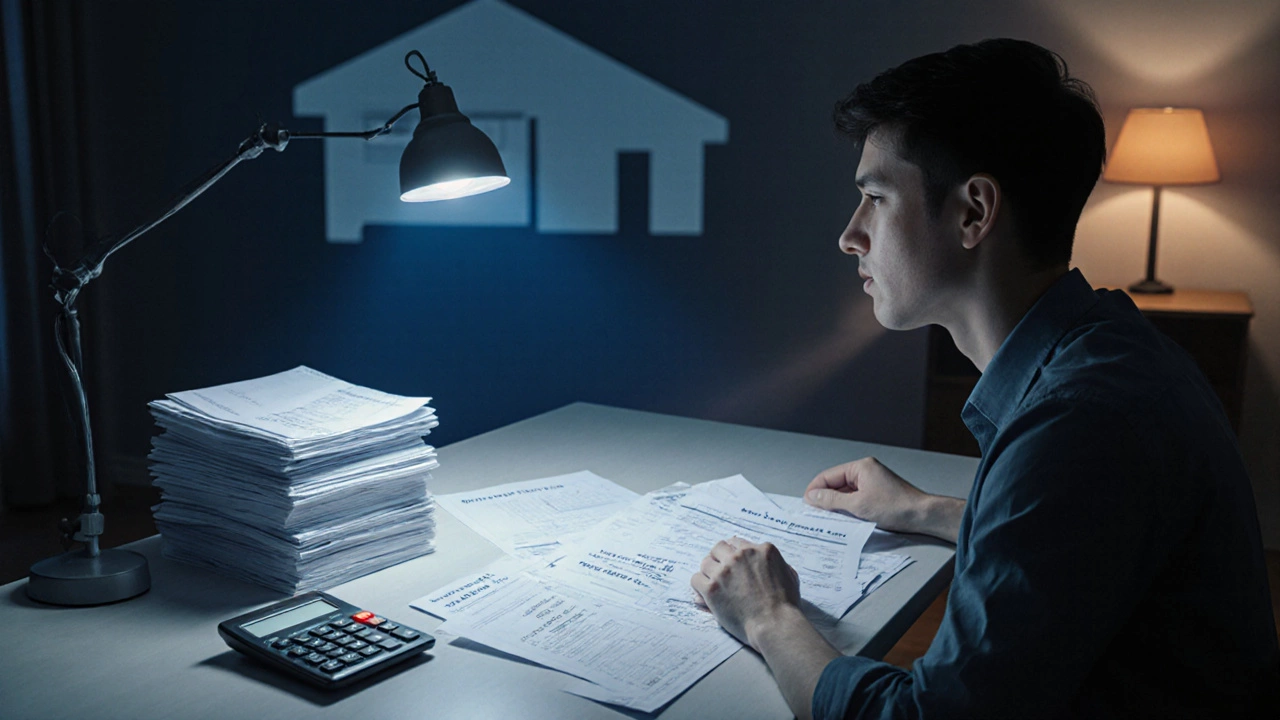Home Ownership Cost Calculator
Compare Buying vs Renting
Calculate the total costs of buying a home versus renting to determine which option makes more financial sense for your situation.
Buying a house is the process of acquiring residential property as a primary or investment home. It sounds exciting, but the flip side is often overlooked. If you’re scrolling through listings, scrolling through calculators, or hearing friends brag about their new keys, you might wonder whether the dream is worth the hidden headaches. Below we break down the biggest downsides so you can decide if the trade‑offs fit your life.
Heavy Financial Load
Most first‑time owners need a mortgage a long‑term loan that covers the purchase price, usually repaid over 15‑30 years. That alone ties up a chunk of your income for decades. On top of monthly payments, you’ll face:
- Up‑front transaction fees costs such as solicitor fees, stamp duty, and registration charges that can total 5‑10% of the property price.
- Property taxes annual levies based on the assessed value of the home that rise with local budgets.
- Potential interest‑rate hikes that swell each payment, especially with variable‑rate loans.
Those numbers add up fast, and they’re locked in. If your income dips, the mortgage stays the same.
Never‑Ending Maintenance Bills
A house is never truly “finished”. Even if you buy a brand‑new build, you’ll soon need to budget for:
- Maintenance costs expenses for routine repairs, servicing HVAC systems, roof replacements, and landscaping. The rule of thumb is 1‑2% of the home’s value each year.
- Home insurance coverage that protects against fire, flood, and other damages. Premiums rise with the property’s rebuild cost.
- Utility upgrades - think water heater replacements, electrical rewiring, or smart‑home integrations.
Unlike rent, where the landlord foots the bill, these costs hit your pocket directly.
Market Risks and Liquidity Issues
Real‑estate markets swing. A city that boomed in 2022 could see price corrections a few years later. The main concerns are:
- Market volatility fluctuations in property values driven by economic cycles, interest rates, and buyer sentiment. A downturn can leave you underwater - owing more than the home’s market worth.
- Liquidity the difficulty of turning a property into cash quickly without a price cut. Selling a house can take months, especially in a buyer‑saturated market.
These risks mean your biggest asset can become a financial burden when you need to move fast.

Reduced Flexibility and Opportunity Cost
Life isn’t static. A new job, a partner’s relocation, or a desire for a different lifestyle can make a house feel like a shack. When you own:
- You’re tied to one location, making spontaneous moves expensive.
- Money tied up in equity can’t be invested elsewhere - think stocks, a startup, or a higher‑yield savings vehicle.
- Renting offers the option to test neighborhoods before committing long‑term.
These trade‑offs matter if your career or personal goals require agility.
Hidden Pitfalls You Might Miss
Even with a thorough search, surprising issues pop up after the keys are handed over.
- A home inspection a professional assessment of a property's condition before purchase might reveal structural problems, mold, or outdated wiring. Fixing them can run into thousands.
- Title or boundary disputes can emerge, leading to legal battles.
- Neighborhood changes - new developments, zoning shifts, or rising crime rates - can affect your quality of life and resale value.
These surprises often aren’t part of the initial price tag.

Quick Comparison - Buying vs. Renting
| Aspect | Buying (Cons) | Renting (Pros) |
|---|---|---|
| Up‑front cost | Large deposit + transaction fees | Usually just a security deposit |
| Monthly cash flow | Mortgage payment + taxes + insurance | Fixed rent, sometimes utilities included |
| Maintenance | Owner pays all repairs | Landlord handles most repairs |
| Flexibility | Hard to move quickly | Easier to relocate when lease ends |
| Market risk | Value can drop, selling takes time | No exposure to property price swings |
| Opportunity cost | Capital tied up in equity | Money can be invested elsewhere |
Checklist Before You Commit
- Calculate the total cons of buying a house - include mortgage, taxes, insurance, maintenance, and fees.
- Run a cash‑flow test: can you cover the monthly payment plus a 10% buffer?
- Get a professional home inspection and draft a list of potential repairs.
- Research the neighborhood’s long‑term development plans and crime statistics.
- Consider your career trajectory - will you need to move within 3‑5 years?
- Compare the cost of buying against renting similar properties in the same area.
Frequently Asked Questions
Is a mortgage always the biggest downside?
A mortgage is a long‑term commitment and often the largest recurring expense, but it’s just one piece. Maintenance, taxes, and loss of flexibility can be equally painful depending on your situation.
How much should I budget for yearly maintenance?
A common rule is 1‑2% of the property’s purchase price each year. For a £350,000 home, that’s £3,500‑£7,000 annually.
Can I avoid stamp duty?
Only specific exemptions apply, such as first‑time buyer relief under certain price thresholds. Otherwise, stamp duty is mandatory and can be a sizable upfront cost.
What’s the risk of buying in a down‑market?
If prices fall after you buy, you could end up with negative equity - owing more than the house is worth. This makes refinancing or selling difficult without taking a loss.
Is renting ever cheaper than buying?
In high‑price markets or when you plan to stay less than five years, renting often costs less overall because you avoid the upfront fees and long‑term commitment.
Should I factor in the cost of selling?
Yes. Expect agent commissions (typically 1‑3% of the sale price), legal fees, and possibly a capital‑gains tax if the property isn’t your primary residence.

